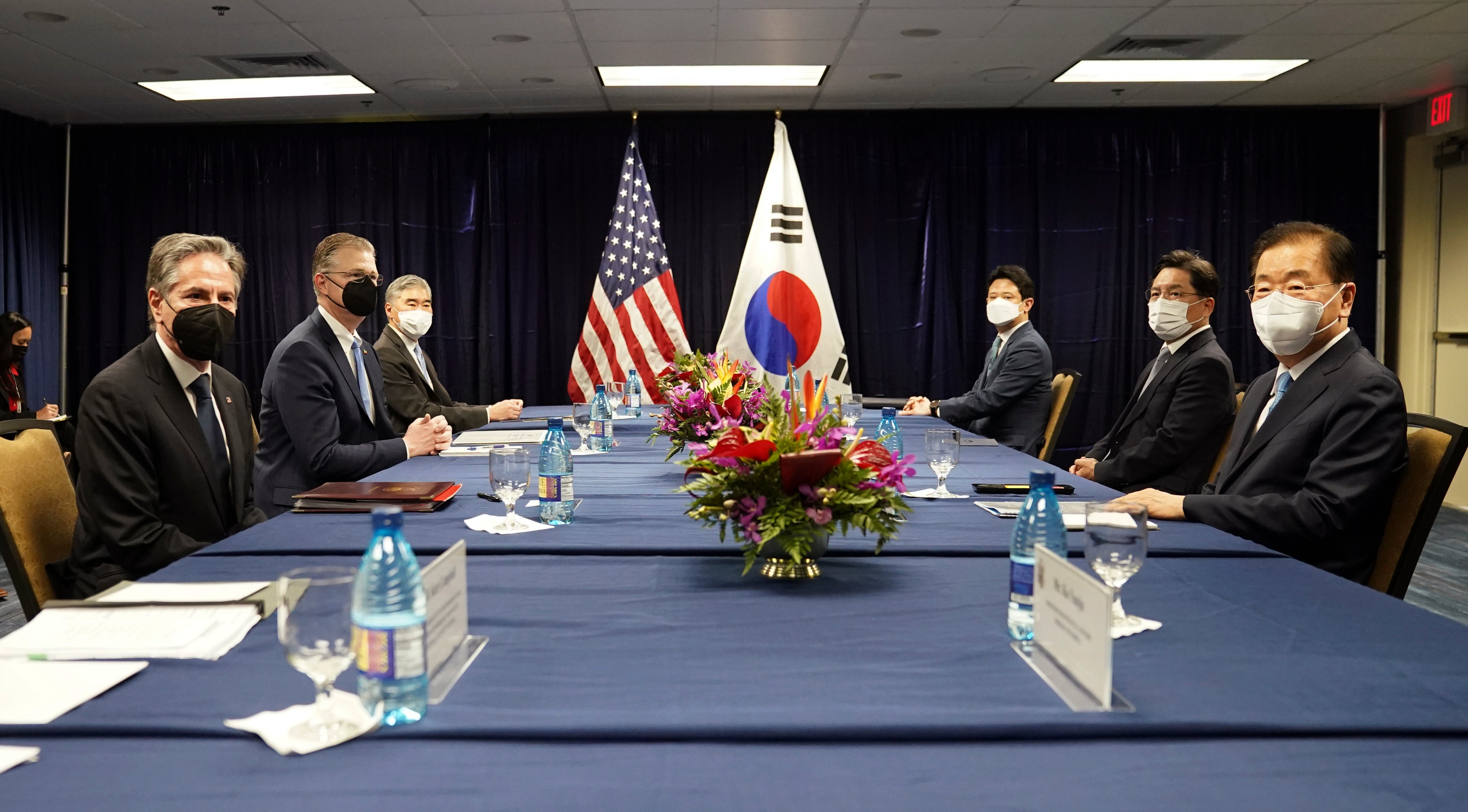US, Japan, South Korea meet in Hawaii to discuss North Korea
U.S. Secretary of State Antony Blinken is meeting his Japanese and South Korean counterparts in Hawaii to discuss the threat posed by North Korea's nuclear and missile programs

Your support helps us to tell the story
From reproductive rights to climate change to Big Tech, The Independent is on the ground when the story is developing. Whether it's investigating the financials of Elon Musk's pro-Trump PAC or producing our latest documentary, 'The A Word', which shines a light on the American women fighting for reproductive rights, we know how important it is to parse out the facts from the messaging.
At such a critical moment in US history, we need reporters on the ground. Your donation allows us to keep sending journalists to speak to both sides of the story.
The Independent is trusted by Americans across the entire political spectrum. And unlike many other quality news outlets, we choose not to lock Americans out of our reporting and analysis with paywalls. We believe quality journalism should be available to everyone, paid for by those who can afford it.
Your support makes all the difference.U.S. Secretary of State Antony Blinken and his Japanese and South Korean counterparts were meeting Saturday in Hawaii to discuss the threat posed by nuclear-armed North Korea after Pyongyang began the year with a series of missile tests.
Blinken gathered in Honolulu with Japanese Foreign Minister Yoshimasa Hayashi and South Korean Foreign Minister Chung Eui-yong. Defense chiefs from the three countries last week said North Korea’s recent missile tests were destabilizing to regional security.
Some experts say North Korea is using the weapon's tests to put pressure on President Joe Biden’s administration to resume long-stalled nuclear negotiations as the pandemic puts further strain on an economy already battered by decades of mismanagement and crippling U.S.-led sanctions.
Biden’s administration has offered North Korea open-ended talks but has shown no willingness to ease the sanctions without meaningful cuts to the country’s nuclear program.
The tests also have a technical component, allowing North Korea to hone its weapons arsenal. One of the missiles recently tested — the Hwasong-12 intermediate-range ballistic missile — is capable of reaching the U.S. territory of Guam. It was the longest-distance weapon the North has tested since 2017.
North Korea appears to be pausing its tests during the Winter Olympics in China, its most important ally and economic lifeline. But analysts believe North Korea will dramatically increase its weapons testing after the Olympics.
The recent tests have rattled Pyongyang's neighbors in South Korea and Japan. South Korean President Moon Jae-in, who helped set up the historic talks between North Korean leader Kim Jong Un and former President Donald Trump in 2018 and 2019, said last month that the tests were a violation UN Security Council resolutions and urged the North to cease “actions that create tensions and pressure.”
The Security Council initially imposed sanctions on North Korea after its first nuclear test in 2006. It made them tougher in response to further nuclear tests and the country’s increasingly sophisticated nuclear and ballistic missile programs.
China and Russia, citing the North's economic difficulties, have called for lifting sanctions like those banning seafood exports and prohibitions on its citizens working overseas and sending home their earnings.
Blinken arrived in Hawaii from Fiji, where he met with Acting Prime Minister Aiyaz Sayed-Khaiyum and other Pacific leaders to talk about regional issues, especially the existential risk posed by climate change. It was the first visit by a U.S. secretary of state to Fiji since 1985.
He started his Pacific tour in Australia, where he met his counterparts from Australia, India and Japan. The four nations form the “Quad,” a bloc of Indo-Pacific democracies that was created to counter China’s regional influence.